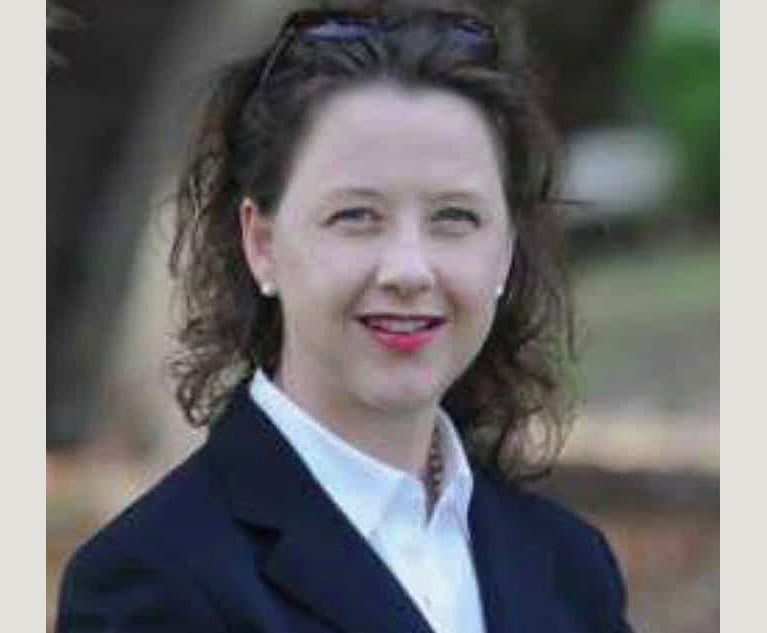Justices Struggle With Privacy Rights in Police Searches of Rental Cars
“What worries me is what's our rule going to be,” Justice Stephen Breyer said Tuesday. “Are we going to have a [Fourth Amendment] rule for car rental cases?”
January 09, 2018 at 03:20 PM
4 minute read
 Justice Stephen Breyer (2015). Photo by Diego M. Radzinschi/ALM
Justice Stephen Breyer (2015). Photo by Diego M. Radzinschi/ALM The U.S. Supreme Court on Tuesday went looking for a clear rule to apply to police searches of rental cars whose drivers are not authorized on the rental agreement to be behind the wheel. At the end of an hour-long argument, the justices were still searching.
“What worries me is what's our rule going to be,” said Justice Stephen Breyer. “Are we going to have a [Fourth Amendment] rule for car rental cases?”
The case, Byrd v. United States, reads like a law school exam hypothetical: Does the driver who was stopped—who is only behind the wheel with the permission of the authorized driver—have a reasonable expectation of privacy in the vehicle?
The U.S. Court of Appeals for the Third Circuit concluded last year that one driver, Terrence Byrd, did not have a privacy expectation after a highway stop near Harrisburg, Pennsylvania. Byrd, according to police, consented to a search of the car and its locked trunk. The officers also reportedly told Byrd they didn't need his consent since he was not an authorized driver on the rental agreement. Byrd said his fiancée, who was the authorized driver, gave him permission to drive the rental car. In searching the trunk, police found body armor and heroin.
During arguments, Byrd's pro bono lawyer, Robert Loeb of Orrick, Herrington & Sutcliffe, faced a web of hypothetical situations posed by the justices—from rental car hijackers to fathers giving permission to sons to drive the family car to car rental agreements permitting police searches.
“If you're given permission by the renter to store your personal items in the car, you have a reasonable expectation of privacy,” Loeb argued. “Unless it's a stolen car or a criminal trespass, there is the ability to invoke the Fourth Amendment.”
But Eric Feigin, an assistant to the solicitor general, pressed a hard-line approach.
“Byrd has to justify an affirmative connection to the rental car,” Feigin countered. “He can't do it. As an unauthorized driver, he has no connection to the car,” and so no reasonable expectation of privacy in it. And, he added, Byrd's fiancée had no authority to give him permission to drive the rental.
Justice Sonia Sotomayor said she worried that under the government's approach, police would have incentive to stop every rental car and fully search those in which there is an unauthorized driver. Justice Elena Kagan noted that a violation of the authorized driver requirement—“not uncommon,” she said—goes to insurance liability, not the Fourth Amendment.
Chief Justice John Roberts Jr. said: “It's important to give clear guidance to the police. If it's a rental car, look at the agreement. If you're not authorized to drive, that's it.”
Even if the rental agreement is not in the rental car, Feigin replied, “We'd make the same argument.”
Read more:
Justices Fret Over Access to Cellphone Data in Key Privacy Case
Q&A: ACLU's Wessler on the SCOTUS Cell-Site Data Case
Dreeben Takes Break from Mueller Team to Argue Before Supreme Court
This content has been archived. It is available through our partners, LexisNexis® and Bloomberg Law.
To view this content, please continue to their sites.
Not a Lexis Subscriber?
Subscribe Now
Not a Bloomberg Law Subscriber?
Subscribe Now
NOT FOR REPRINT
© 2025 ALM Global, LLC, All Rights Reserved. Request academic re-use from www.copyright.com. All other uses, submit a request to [email protected]. For more information visit Asset & Logo Licensing.
You Might Like
View All
Hogan Lovells, Jenner & Block Challenge Trump EOs Impacting Gender-Affirming Care
3 minute read
GOP-Led SEC Tightens Control Over Enforcement Investigations, Lawyers Say

SEC Sued for Failing to Reveal Records Involving Simpson Thacher Attorney
4 minute read
Ex-Prosecutor’s Trial Ends as Judge Throws Out Her Felony Indictment in Ahmaud Arbery Death Case
Trending Stories
- 1January Petitions Press High Court on Guns, Birth Certificate Sex Classifications
- 2'A Waste of Your Time': Practice Tips From Judges in the Oakland Federal Courthouse
- 3Judge Extends Tom Girardi's Time in Prison Medical Facility to Feb. 20
- 4Supreme Court Denies Trump's Request to Pause Pending Environmental Cases
- 5‘Blitzkrieg of Lawlessness’: Environmental Lawyers Decry EPA Spending Freeze
Who Got The Work
J. Brugh Lower of Gibbons has entered an appearance for industrial equipment supplier Devco Corporation in a pending trademark infringement lawsuit. The suit, accusing the defendant of selling knock-off Graco products, was filed Dec. 18 in New Jersey District Court by Rivkin Radler on behalf of Graco Inc. and Graco Minnesota. The case, assigned to U.S. District Judge Zahid N. Quraishi, is 3:24-cv-11294, Graco Inc. et al v. Devco Corporation.
Who Got The Work
Rebecca Maller-Stein and Kent A. Yalowitz of Arnold & Porter Kaye Scholer have entered their appearances for Hanaco Venture Capital and its executives, Lior Prosor and David Frankel, in a pending securities lawsuit. The action, filed on Dec. 24 in New York Southern District Court by Zell, Aron & Co. on behalf of Goldeneye Advisors, accuses the defendants of negligently and fraudulently managing the plaintiff's $1 million investment. The case, assigned to U.S. District Judge Vernon S. Broderick, is 1:24-cv-09918, Goldeneye Advisors, LLC v. Hanaco Venture Capital, Ltd. et al.
Who Got The Work
Attorneys from A&O Shearman has stepped in as defense counsel for Toronto-Dominion Bank and other defendants in a pending securities class action. The suit, filed Dec. 11 in New York Southern District Court by Bleichmar Fonti & Auld, accuses the defendants of concealing the bank's 'pervasive' deficiencies in regards to its compliance with the Bank Secrecy Act and the quality of its anti-money laundering controls. The case, assigned to U.S. District Judge Arun Subramanian, is 1:24-cv-09445, Gonzalez v. The Toronto-Dominion Bank et al.
Who Got The Work
Crown Castle International, a Pennsylvania company providing shared communications infrastructure, has turned to Luke D. Wolf of Gordon Rees Scully Mansukhani to fend off a pending breach-of-contract lawsuit. The court action, filed Nov. 25 in Michigan Eastern District Court by Hooper Hathaway PC on behalf of The Town Residences LLC, accuses Crown Castle of failing to transfer approximately $30,000 in utility payments from T-Mobile in breach of a roof-top lease and assignment agreement. The case, assigned to U.S. District Judge Susan K. Declercq, is 2:24-cv-13131, The Town Residences LLC v. T-Mobile US, Inc. et al.
Who Got The Work
Wilfred P. Coronato and Daniel M. Schwartz of McCarter & English have stepped in as defense counsel to Electrolux Home Products Inc. in a pending product liability lawsuit. The court action, filed Nov. 26 in New York Eastern District Court by Poulos Lopiccolo PC and Nagel Rice LLP on behalf of David Stern, alleges that the defendant's refrigerators’ drawers and shelving repeatedly break and fall apart within months after purchase. The case, assigned to U.S. District Judge Joan M. Azrack, is 2:24-cv-08204, Stern v. Electrolux Home Products, Inc.
Featured Firms
Law Offices of Gary Martin Hays & Associates, P.C.
(470) 294-1674
Law Offices of Mark E. Salomone
(857) 444-6468
Smith & Hassler
(713) 739-1250








